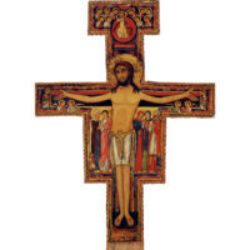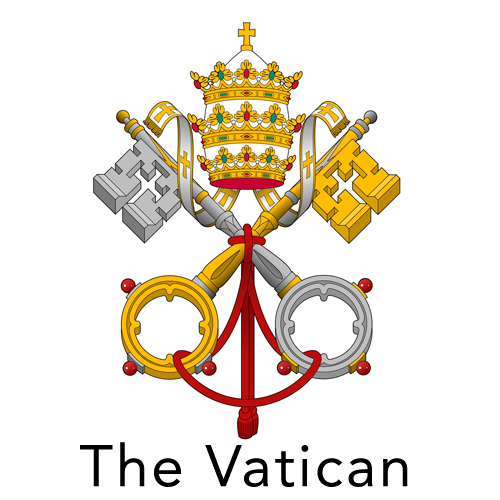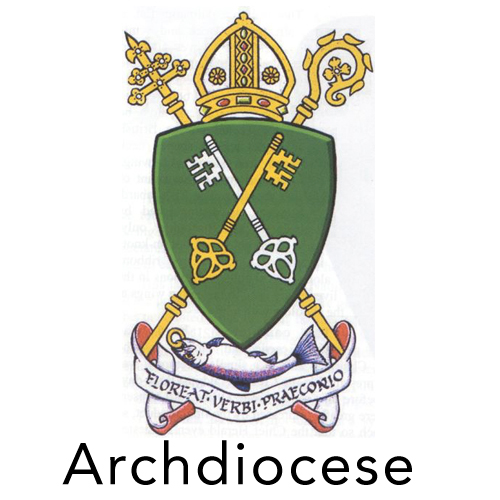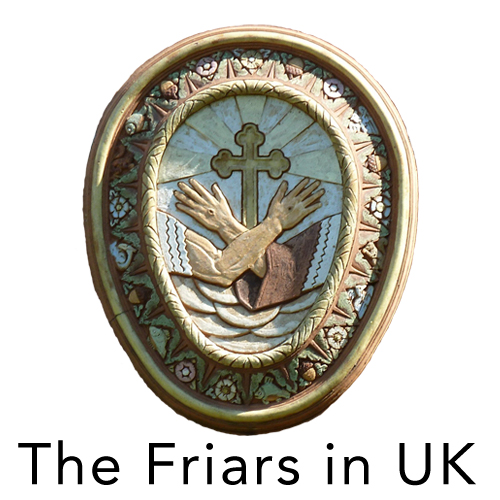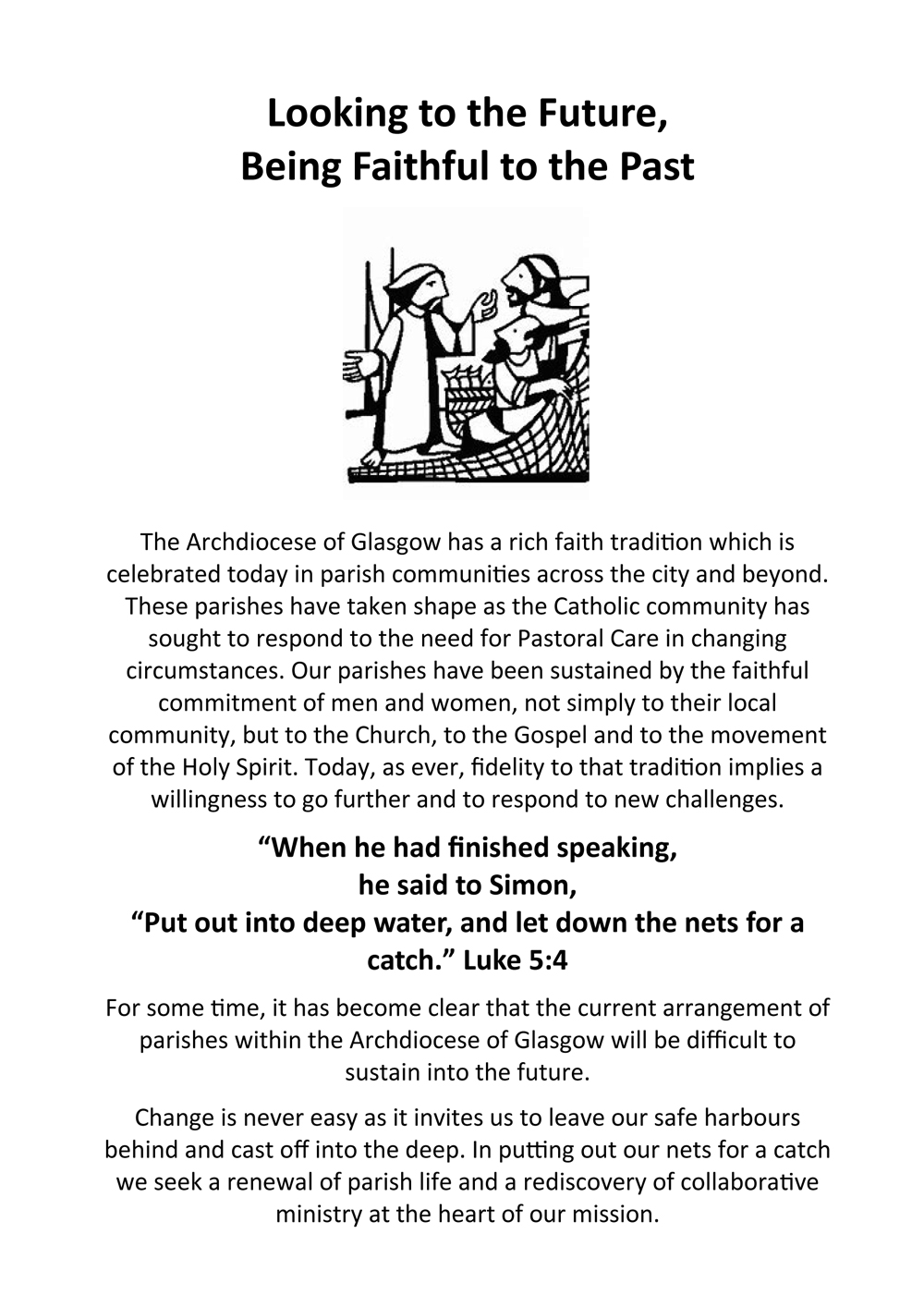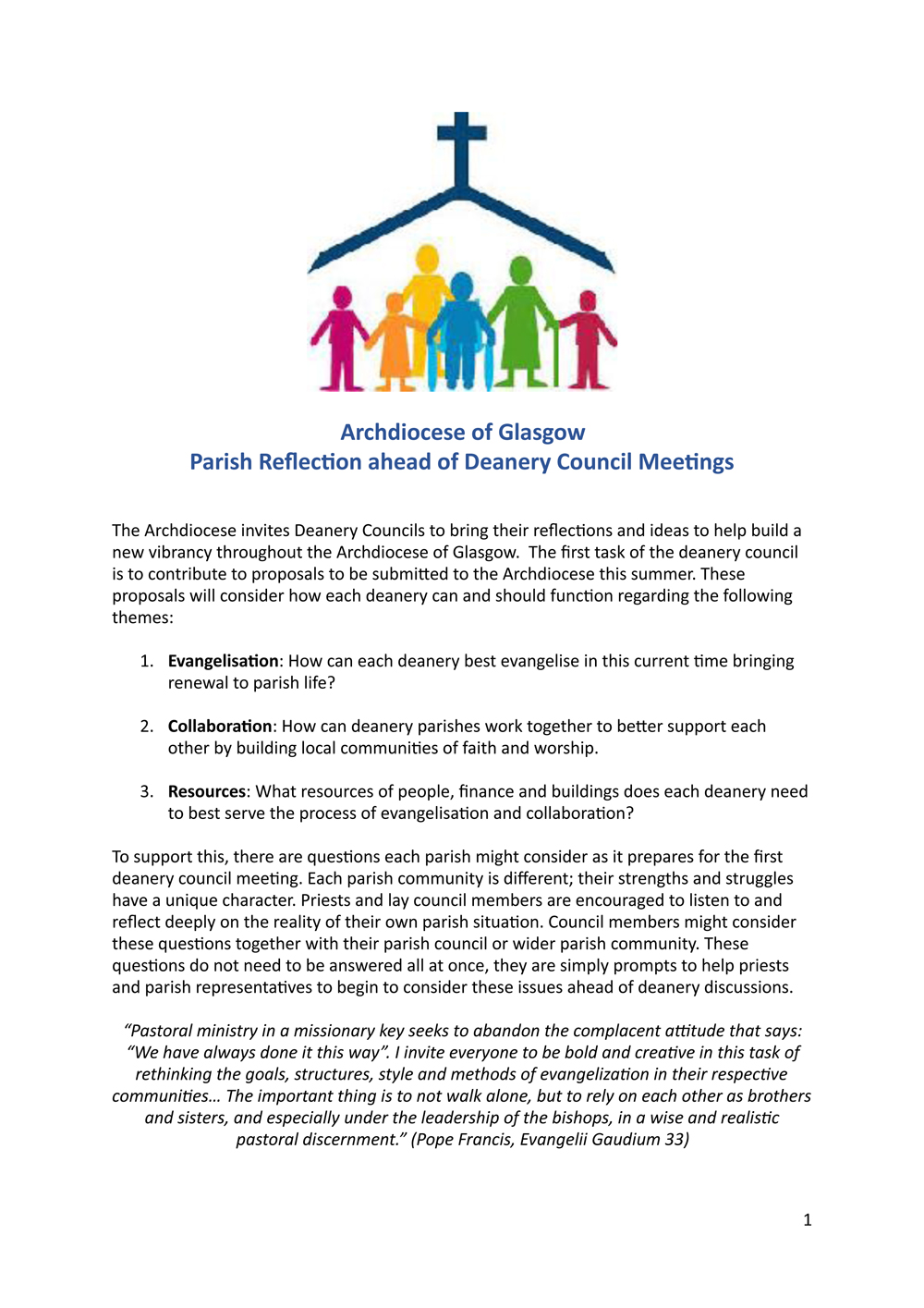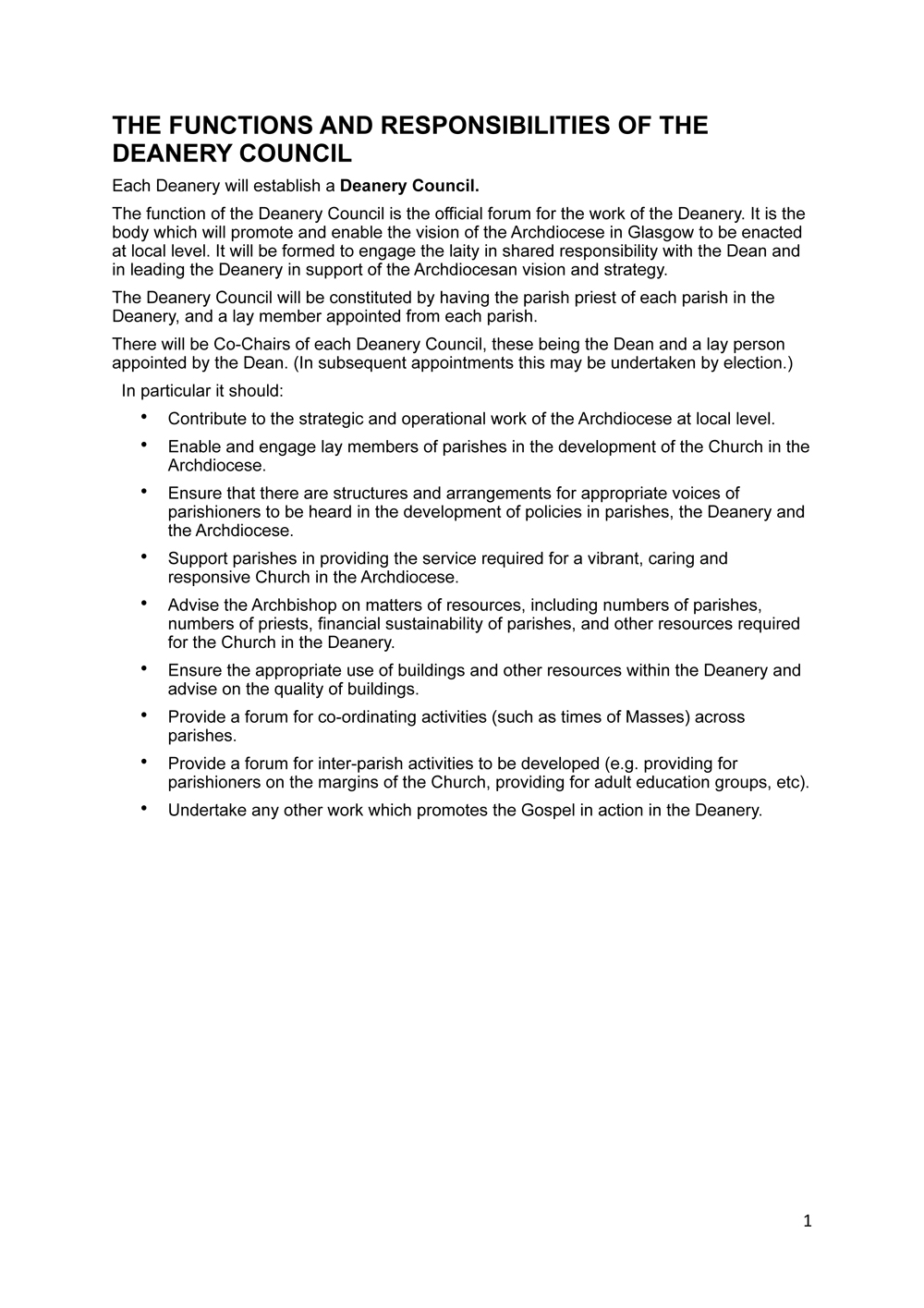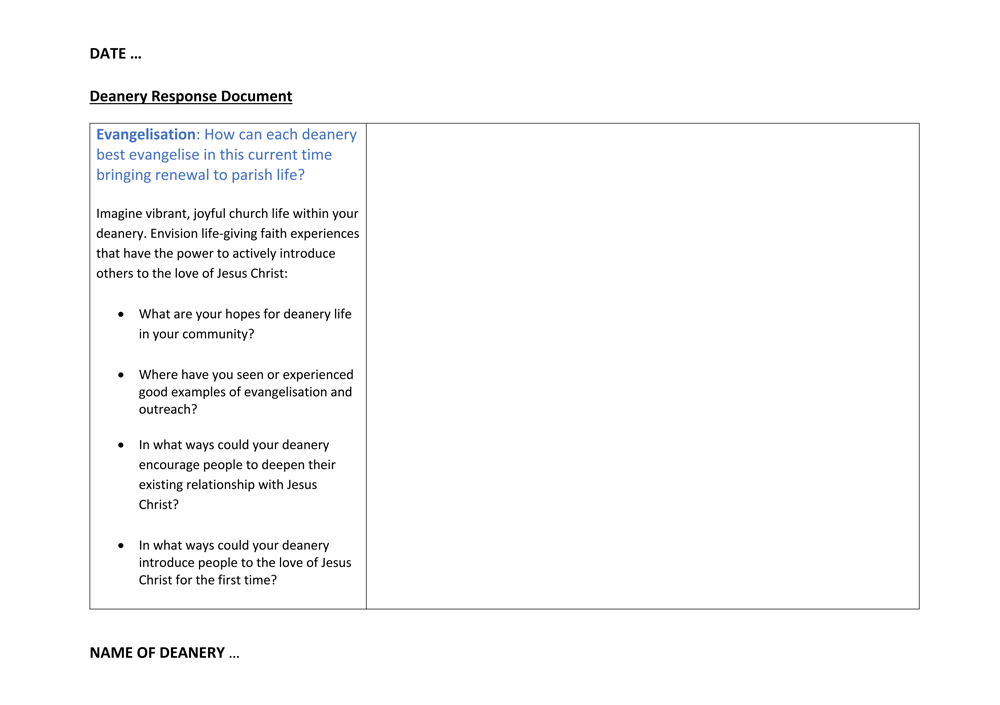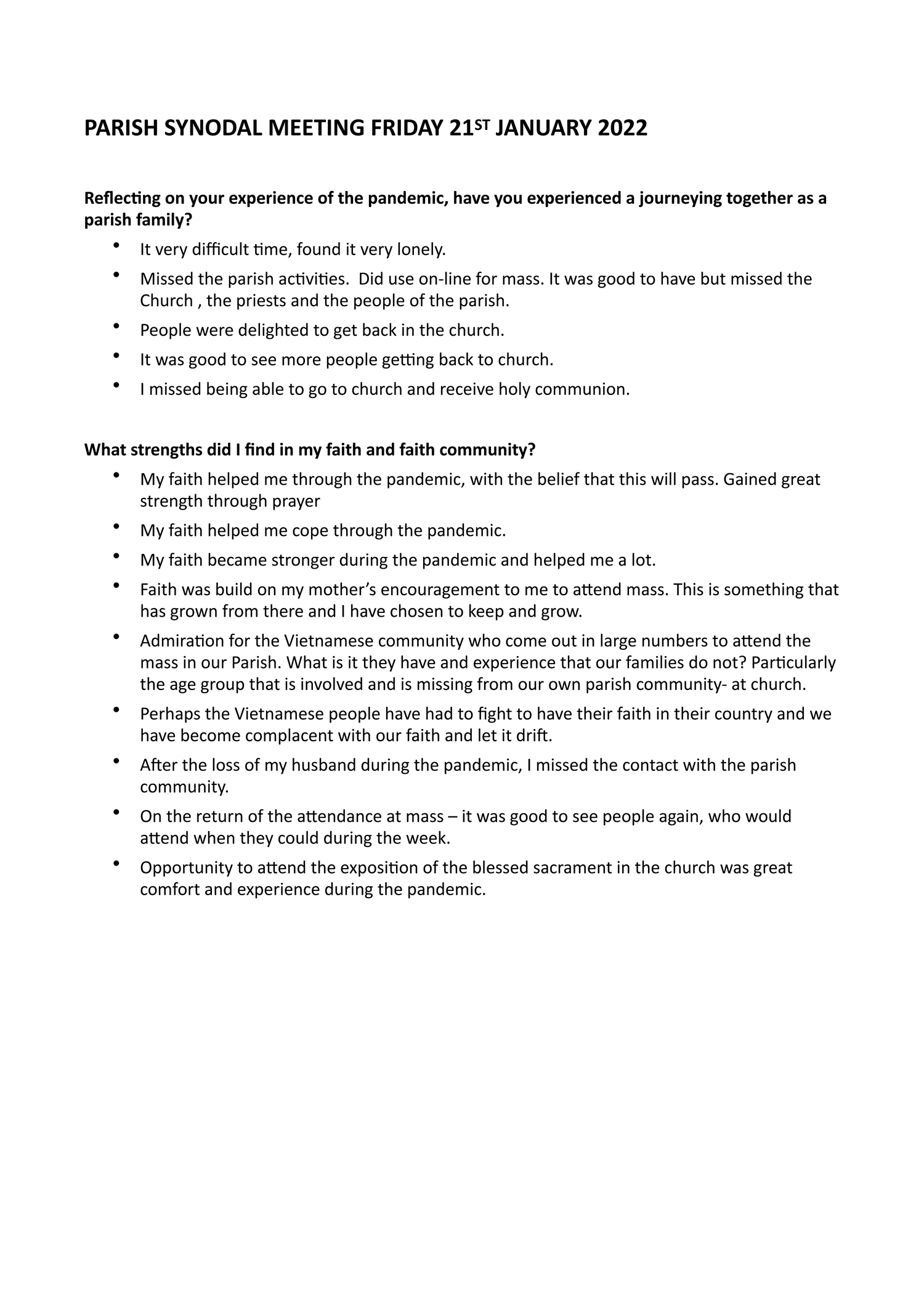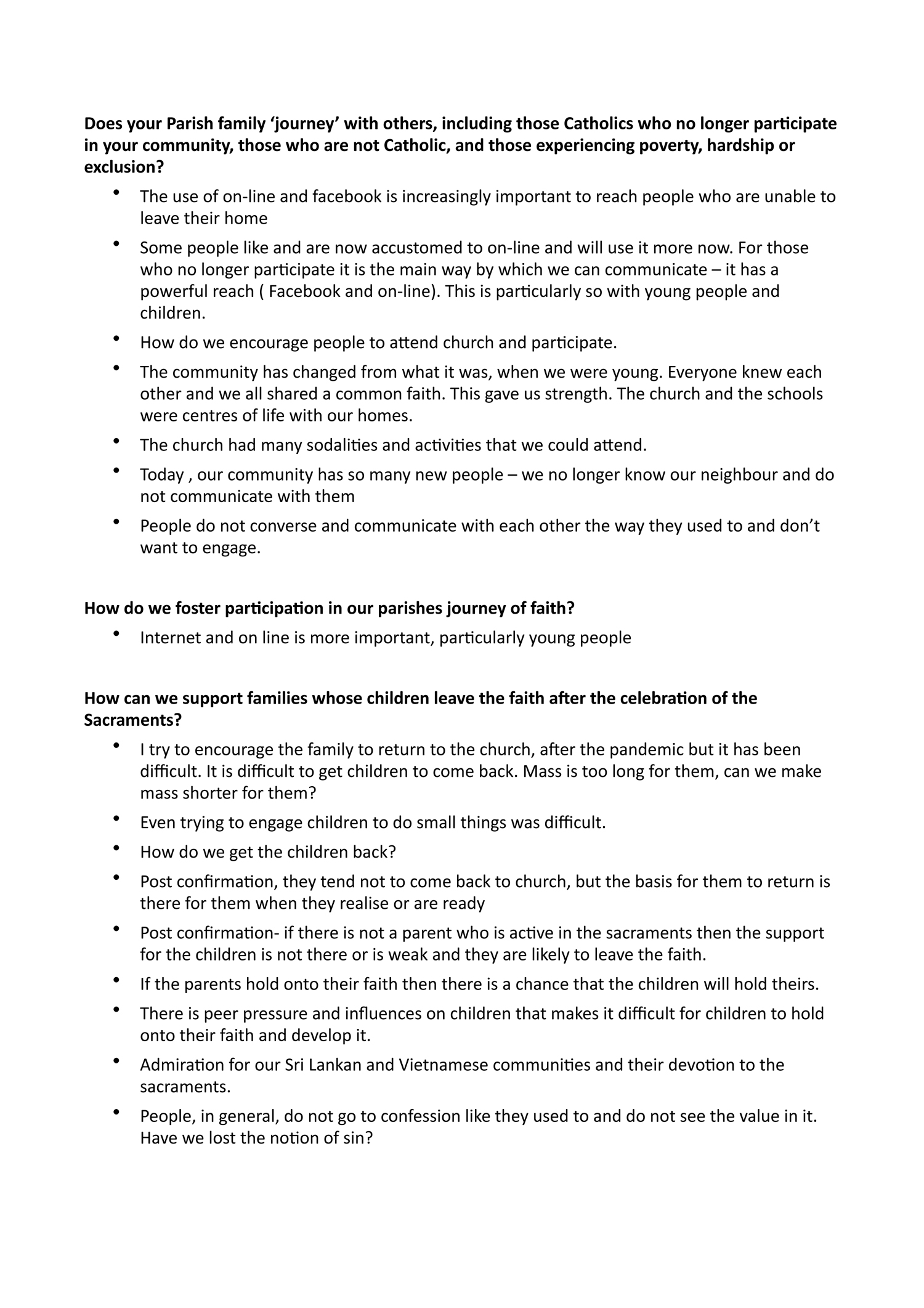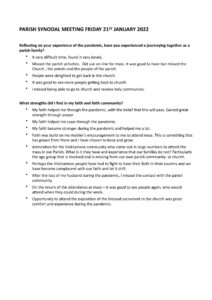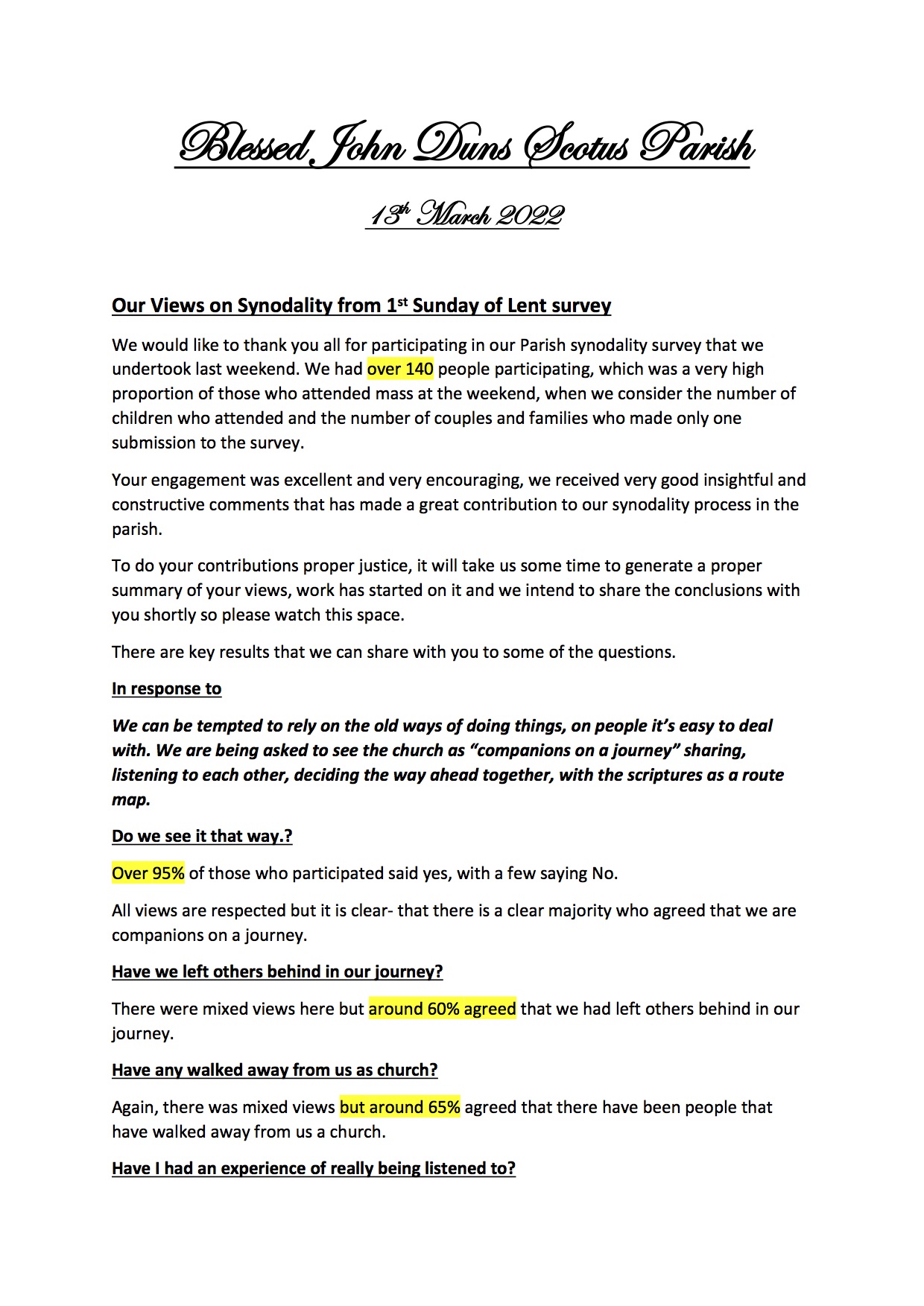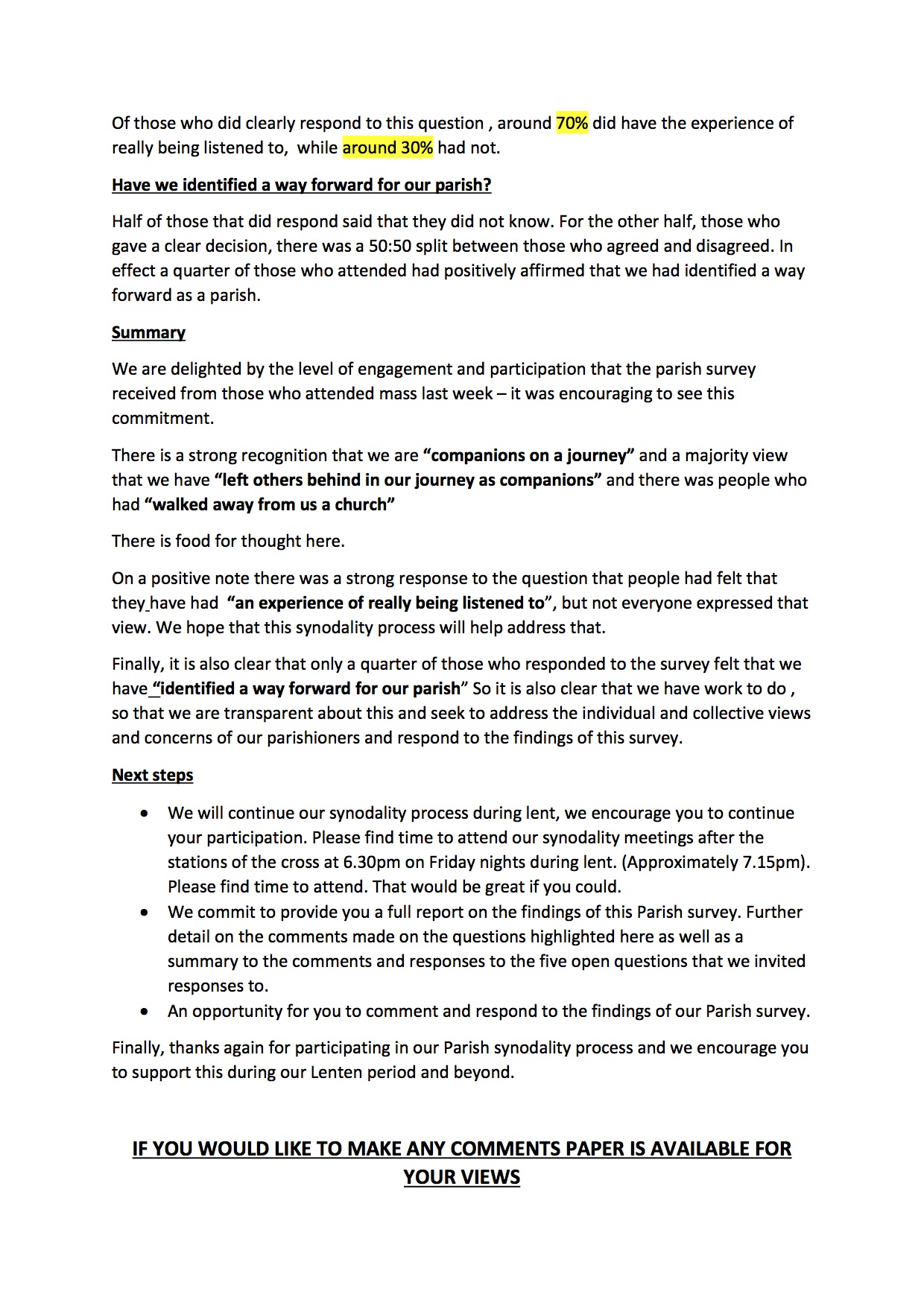Resources
We shall be publishing resources relevant to the Parish and the work of the Church here. These resources are delivered from the context of the teachings of the faith of the Catholic Church and are intended as support for those who are practising catholics or who may wish to understand the basis of the teachings of the Church.
Marriage Guidance;
Sacramental Guidance;
Hymns for events;
Advice on events;
Safeguarding in the Catholic Church;
Video link;
Archdiocese;
OFM;
The Vatican
Deanery Council Consultation
Looking to the Future. Being Faithful to the Past
The Archdiocese of Glasgow has a rich faith tradition which is celebrated today in parish communities across the city and beyond. These parishes have taken shape as the Catholic community has sought to respond to the need for Pastoral Care in changing circumstances. Our parishes have been sustained by the faithful commitment of men and women, not simply to their local community, but to the Church, to the Gospel and to the movement of the Holy Spirit. Today, as ever, fidelity to that tradition implies a willingness to go further and to respond to new challenges.
“When he had finished speaking, he said to Simon, “Put out into deep water, and let down the nets for a catch.” Luke 5:4
For some time, it has become clear that the current arrangement of parishes within the Archdiocese of Glasgow will be difficult to sustain into the future. Change is never easy as it invites us to leave our safe harbours behind and cast off into the deep. In putting out our nets for a catch we seek a renewal of parish life and a rediscovery of collaborative ministry at the heart of our mission.
Together we seek a new spirit of evangelisation to create vibrant faith filled communities where Christ’s presence is celebrated. We seek a renewal of priestly and lay ministry. We seek a more collaborative experience of ministry. In fidelity to those who have gone before us we seek a new Pentecost for the Church in the Archdiocese of Glasgow. The process outlined here invites a review of parish structures. This process seeks to encourage discussion, to promote growth, and through a spirit of collaboration to build a strong pastoral response to the challenges faced by the Church today, particularly the shortage of priests. In this discussion we identify the deanery structure with the goal of considering how we might better work together, priests and people, sharing faith and sharing resources. This discussion will enable decisions to be made on matters such as:
- The number of parishes and churches required to serve a given pastoral area.
- The distribution of priests across the Archdiocese.
- The number of priests assigned to serve a given pastoral area.
- The number of Masses to be celebrated at the weekend and on weekdays within a given area.
Each Deanery is made up of several pastoral areas. Each pastoral area, working as part of the deanery needs to assess how best to use the resources that are available, including the number of priests available. Some Guiding Principles . This discussion affects every parish in the Archdiocese – not just those which might be assessed as being smaller or less viable. . Responses need to emerge through prayerful listening, ongoing discussion, local knowledge, and a willingness to seek out appropriate solutions based on collective responsibility. . There is no Master Plan that would cover all eventualities over an indeterminate period. Pastoral solutions must be characterised by flexibility and ongoing review. There is an expectation that in the course of time some parish churches may be used less, closed, or reduced in status so that Sunday Mass is no longer celebrated there on a regular basis. All decisions need to be taken in consultation with the appropriate parties. New Opportunities for Growth New and Renewed Parish Structures To enable this discussion each deanery needs to form a Deanery Council consisting of the parish priests of the deanery along with one representative from each parish. The deanery council should be co-chaired by the Dean and a Lay person. The Deanery Pastoral Council should assess the pastoral needs of the Deanery seeking out the most appropriate responses to ensure sacramental and pastoral care. Properly implemented this process will reinvigorate growth in lay ministry. Making it clear that lay ministry belongs at the heart of the Church. Viability Viability of a given parish within this process is an important issue. The following criteria are intended to guide deaneries in assessing the issue of viability. A significant weakness in one or two of these criteria would not mean that the parish is not viable, but it would indicate that the parish might need additional support.
The baptised faithful are the heart of every parish. To survive, every parish needs a core of members who are truly committed to the Gospel of Christ and are willing to make the parish a priority, giving generously of their time, their talent, and their finance resources.
- A viable parish probably needs a minimum active membership of 50- 75 persons. A parish that is smaller than this and has experienced decline rather than growth during the past five years, cannot easily expect to have the fulltime services of a priest five years from now. This kind of assessment should take note of the ratio of baptisms to the number of funerals each year over a 5 -10 year period; studying the increase, decrease, or stability of the general population in a geographic area.
- A viable parish must also have a sufficient number of active parishioners offering ministry by assisting as part of the Parish Pastoral Council, Finance Council, Music Ministry, Readers, Extraordinary Ministers of Holy Communion, etc.
- It is not reasonable to ask priests to provide pastoral ministry to an unrealistic number of parishes.
- In parishes where the same small, aging group of parishioners bears the burden of parish leadership and gives their time, talent, and finance in large measure, there would be serious concern about future viability. If the percentage of the faithful taking an active role in parish life cannot be increased, viability could be at risk.
- A viable parish demonstrates that liturgy is at the centre of its life. The ultimate goal of every parish is to bring the faithful closer to Jesus Christ. This is why the Sunday Eucharist should be the heart of every parish.
- A viable parish extends a spirit of hospitality and invites people to become members. It is committed to evangelizing the un-churched by means of active programmes such as the Rite of Christian Initiation of Adults (RCIA).
- A viable parish encourages inactive members to return. A viable parish exhibits practical outreach and service to the poor, the needy, and the homeless.
- A viable parish should have an annual income that is sufficient to cover the expenses of the parish. A viable parish should not be dependent on the Archdiocese for its ordinary expenses. It should be able to make reasonable payments on its debts to the Archdiocese.
- A viable parish should be able to maintain the parish facilities and property in good condition.
- The viability of a given parish is influenced by its location. The proximity of neighbouring parishes can have a real impact on the viability of a parish. If several parishes are in close proximity with large, aging buildings that are not needed and churches that are never even half-full, this can be a serious factor in viability.
For more information on this process then please download the files on the right and have a read through. It is important that as many people of the Parish contribute their thoughts to this process in order for it to be as full an assessment as possible. Please do try to find the time to engage with this.
Questions For Parishes
The Archdiocese invites Deanery Councils to bring their reflections and ideas to help build a new vibrancy throughout the Archdiocese of Glasgow. The first task of the deanery council is to contribute to proposals to be submitted to the Archdiocese this summer. These proposals will consider how each deanery can and should function regarding the following themes:
- Evangelisation: How can each deanery best evangelise in this current time bringing renewal to parish life?
- Collaboration: How can deanery parishes work together to better support each other by building local communities of faith and worship.
- Resources: What resources of people, finance and buildings does each deanery need to best serve the process of evangelisation and collaboration?
To support this, there are questions each parish might consider as it prepares for the first deanery council meeting. Each parish community is different; their strengths and struggles have a unique character. Priests and lay council members are encouraged to listen to and reflect deeply on the reality of their own parish situation. Council members might consider these questions together with their parish council or wider parish community. These questions do not need to be answered all at once, they are simply prompts to help priests and parish representatives to begin to consider these issues ahead of deanery discussions.
“Pastoral ministry in a missionary key seeks to abandon the complacent attitude that says: “We have always done it this way”. I invite everyone to be bold and creative in this task of rethinking the goals, structures, style and methods of evangelization in their respective communities… The important thing is to not walk alone, but to rely on each other as brothers and sisters, and especially under the leadership of the bishops, in a wise and realistic pastoral discernment.” (Pope Francis, Evangelii Gaudium 33)
Evangelisation: How can each deanery best evangelise in this current time?
Imagine vibrant, joyful church life within your deanery. Envision life-giving faith experiences that have the power to actively introduce others to the love of Jesus Christ:
- What are your hopes for deanery life in your community? Where would you love to see new life and vibrancy?
- Where have you seen or experienced good examples of evangelisation and outreach?
- Where have you seen or experienced good examples to evangelise young people?
- In what ways could your deanery encourage people to deepen their existing relationship with Jesus Christ?
- Are there things your deanery could do to introduce people to the love of Jesus Christ for the first time?
- In what ways are the parishioners of your deanery well-positioned to act on their faith by serving those in need within your local community?
Collaboration: How can deanery parishes work together in new ways to support each other?
- What parishes in your deanery would be natural collaborators with your own in sharing knowledge, expertise and leadership as we plan for the future?
- What strengths and gifts can your parish offer your deanery?
- What strengths and gifts do you know of in other deanery parishes that will be helpful in this process?
- How ready is your parish to work in a new collaborative way with other parishes?
- What will your parish find challenging in this collaboration? What would help your parish work well with others?
Resources: What resources of people, finance and buildings does each deanery need to best serve these plans for evangelisation and collaboration?
Priestly leadership and Participation
- Given fewer numbers of priests, how should Mass schedules and the celebration of the Sacraments in each deanery be reorganised?
- Given the projected fall in the number of active Priests in the next few years; how can Priests best serve evangelisation efforts in each deanery?
Lay Leadership and Participation:
- Does your parish have a core of members truly committed to the Gospel of Christ?
- How willing are parishioners to make the parish a priority, giving generously of their time, talent and resources?
- Does your parish have enough people offering active ministry to the parish (e.g. Parish Council, Finance Council, Music Ministry, Readers, Extraordinary ministers of Holy Communion etc.)?
- Are young people and families well represented and active within your congregation and in the various ministries?
“Synodal Leadership”
- What structures do you see being necessary to maximise the effectiveness of synodal leadership in which priests and laity contribute to the communities of faith and worship locally?
Financial resources
- Does your parish have sufficient income to cover your parish expenses and pay the Archdiocesan levy in any given year?
- How will this be impacted by the projected rise in gas and electric costs over the coming year?
- Can your parish fund new outreach or evangelisation projects as envisioned above?
Church and building spaces
- Is your parish able to maintain its facilities and properties in good condition?
- Are there major capital expenditure works required in your parish in future? (Consider things like wind and watertight roofs, gutters, windows and walls. Electrical safety, accessibility, toilets and welfare facilities etc.)
Formation and Education
- What formation and/or education of priests and laity do you consider necessary to achieve the vision in your area?
The Deanery Councils
THE FUNCTIONS AND RESPONSIBILITIES OF THE DEANERY COUNCIL
Each Deanery will establish a Deanery Council.
The function of the Deanery Council is the official forum for the work of the Deanery. It is the body which will promote and enable the vision of the Archdiocese in Glasgow to be enacted at local level. It will be formed to engage the laity in shared responsibility with the Dean and in leading the Deanery in support of the Archdiocesan vision and strategy.
The Deanery Council will be constituted by having the parish priest of each parish in the Deanery, and a lay member appointed from each parish.
There will be Co-Chairs of each Deanery Council, these being the Dean and a lay person appointed by the Dean. (In subsequent appointments this may be undertaken by election.)
In particular it should:
- Contribute to the strategic and operational work of the Archdiocese at local level.
- Enable and engage lay members of parishes in the development of the Church in the Archdiocese.
- Ensure that there are structures and arrangements for appropriate voices of parishioners to be heard in the development of policies in parishes, the Deanery and the Archdiocese.
- Support parishes in providing the service required for a vibrant, caring and responsive Church in the Archdiocese.
- Advise the Archbishop on matters of resources, including numbers of parishes, numbers of priests, financial sustainability of parishes, and other resources required for the Church in the Deanery.
- Ensure the appropriate use of buildings and other resources within the Deanery and advise on the quality of buildings.
- Provide a forum for co-ordinating activities (such as times of Masses) across parishes.
- Provide a forum for inter-parish activities to be developed (e.g. providing for parishioners on the margins of the Church, providing for adult education groups, etc).
- Undertake any other work which promotes the Gospel in action in the Deanery.
ROLE OF THE LAY CO-CHAIR OF DEANERY COUNCIL
The Lay Co-Chair of the Deanery Council should be concerned with supporting the Dean, as the other Co-Chair, on all relevant matters concerned with the forming, operation, and development of the Deanery Council and of the life and work of the Deanery itself.
The Lay Co-Chair will be appointed for a two-year period and may be re-appointed on completion of this term of office.
The Lay Co-Chair of the Deanery is expected to be a person who can contribute constructively to the strategic development of the Deanery and the Archdiocese. This will require an understanding of the direction in which the Church is taking in Glasgow, as well as a grasp of the ways in which the operation of the Church can function within the resources available to it. This person should be prepared to participate in decision-making which is always in the best interests of the Church as a whole.
The Lay Co-Chair of the Deanery Council will be expected to
- Support and advise the Dean in matters relating to the development of the Deanery.
- Foster and encourage lay participation in the life of the Deanery.
- Visit parishes within the Deanery to encourage lay participation in the development of the Church in the Archdiocese.
- Act as a main support to the Dean in him carrying out his duties as Dean.
- Contribute to the overall strategic leadership and development of the Archdiocese as it relates to the operational work of the parishes.
- Understand the wider issues in managing parishes and groups of parishes so that they function as sustainable units within the Archdiocese.
- Help to manage and organise all regular Deanery meetings, and any other such meeting as benefits the work of the Deanery.
- Ensure that the laity are well informed of matters relating to parish and Deanery life
- Acting as an agent of communication to/from the Archdiocese.
- Participate in meetings and activities with other Co-Chairs and Deans.
- Undertake any other reasonable duty that advances the work of the Deanery Council.

(Click on the images above to download pdf)

SYNODALITY
SYNODALITY: This is a word which we will be hearing a lot in the future.
It is about the Church consulting all the People of God, and that means you! It will be a period of consultation and discernment in local churches.
Are we trying to journey together in our Christian life? What does it mean to journey together in faith? How can we respond to the challenge to journey together ? Are you aware of some happening in the local Church(Diocese) which makes you aware of being part of this local Church? Or do you feel separated from it?
It is an invitation for you and each of us to have our say about what we think of the church.
It is a process of listening. There is no set agenda or list of questions, it is for each of us to consider what direction the Holy Spirit is leading us.
Listening to one another “ is a slow and perhaps tiring exercise” but it must be done, including listening to “the questions, concerns and hopes of every church, people and nation,” and to the “challenges and changes” that world presents.
If you have questions, concerns, suggestions about what we need to do to be a vibrant church for the future you are invited to make your voice heard.
In an attempt to understand and find answers together as a parish then there will be a series of meetings and events where such discussions can be had. It is all part of an important dialogue in order for us to understand where we are as a Parish in terms of our journey of faith.
Below is a pdf of the most recent meeting outcomes which can also be read in the adjacent panel.
